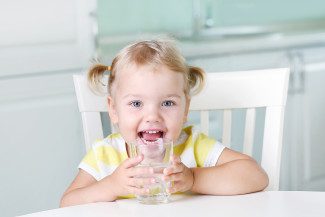Choose your filter type to find out how to change your water filter

Why should I change my refrigerator water filter?
Your refrigerator water filter becomes less efficient over time, as it traps more and more impurities. As the water filter fills with impurities, you might notice that water flow is slowing. Changing your water filter ensures that you get filtered water that tastes and smells good.
How often should I change my refrigerator water filter?
Refrigerator manufacturers recommend installing a new water filter every 6 months. If you notice water flow slowing, change it sooner.
What is the PartsDirect refrigerator water filter subscription program?
When you sign up for a water filter subscription during checkout, we automatically send your water filter every 6 or 12 months—you choose. You get free shipping and don’t have to remember to reorder. And you can change the shipping date or cancel at any time.
Can I use my refrigerator without the water filter?
Almost all refrigerator water systems will work without the water filter. With the water filter removed, unfiltered water flows directly to the ice maker and water dispenser. Check your owner’s manual for instructions on using your refrigerator without the water filter.
We don’t recommend using your refrigerator without the water filter unless your home uses a whole-house water filter.
What does a refrigerator water filter do?
A refrigerator water filter reduces impurities, chlorine taste and odor in your refrigerator’s water supply. Some water filters also eliminate harmful chemicals and impurities such as iron, chloramines, manganese, hydrogen sulfide and zinc.
Filtered water from your refrigerator tastes better than tap water and can be safer, depending on your water supply and NSF certification that the filter made for your refrigerator has.
How much water should I run through a new refrigerator water filter?
Immediately after installing a new water filter, run 2 to 3 gallons of water through the dispenser to purge air from the water system and flush carbon dust and residue out of the water filter.
Flushing residue from the water filter keeps carbon dust from turning ice cubes gray and making dispensed water cloudy.
Purging trapped air in the water filter and water tubing helps prevent the water dispenser from dripping constantly after you install the new filter.
What is NSF certification?
NSF International tests and certifies thousands of products—including refrigerator water filters—to verify they meet public health and safety standards. Water filters that meet NSF standards bear the NSF certification mark.
What does NSF water filter certification 42 mean?
Refrigerator water filters with NSF certification 42 are certified to reduce chlorine taste and odor, iron, chloramines, manganese, hydrogen sulfide and zinc. They also neutralize pH (acidity and alkalinity).
What does NSF water filter certification 53 mean?
Refrigerator water filters with NSF certification 53 are certified to reduce the same impurities included in certification 42: chlorine taste and odor, iron, chloramines, manganese, hydrogen sulfide and zinc.
In addition, water filters with NSF certification 53 reduce lead and other heavy metals, fluoride, nitrate/nitrite and volatile organic chemicals.
What does NSF water filter certification 401 mean?
Refrigerator water filters with NSF certification 401 are certified to reduce the same impurities included in certifications 42 and 53: chlorine taste and odor, iron, chloramines, manganese, hydrogen sulfide, zinc, lead and other heavy metals, fluoride, nitrate/nitrite and volatile organic chemicals.
In addition, water filters with NSF certification 401 are certified to reduce pesticides and pharmaceuticals that might be present in low concentrations not officially considered a health risk.
Order your replacement water filter today. Subscribe and we'll send you your water filter replacement automatically (and with free shipping), so you don’t have to remember to reorder.
